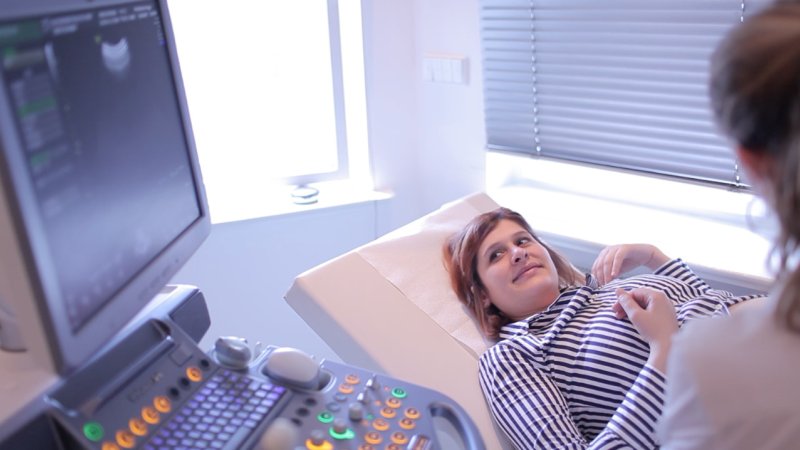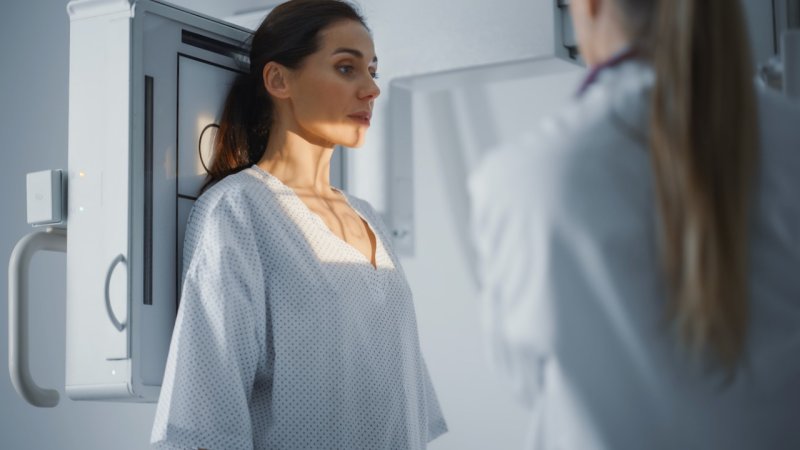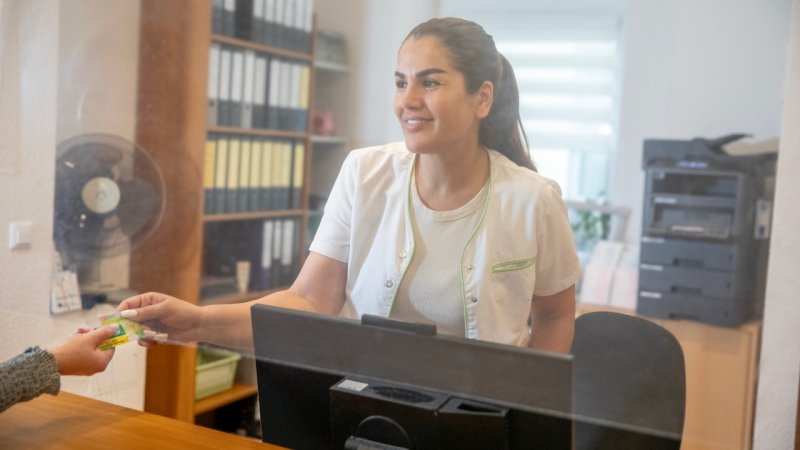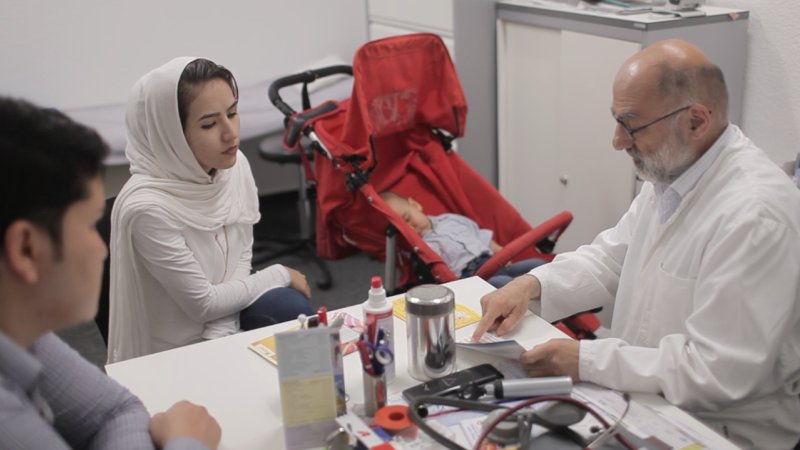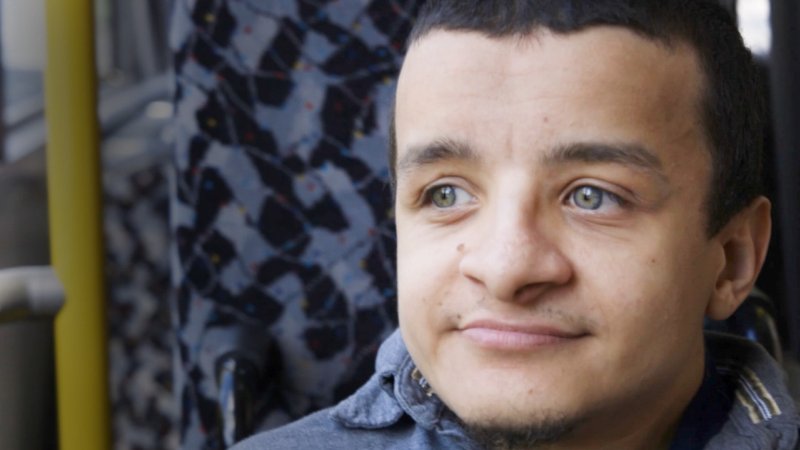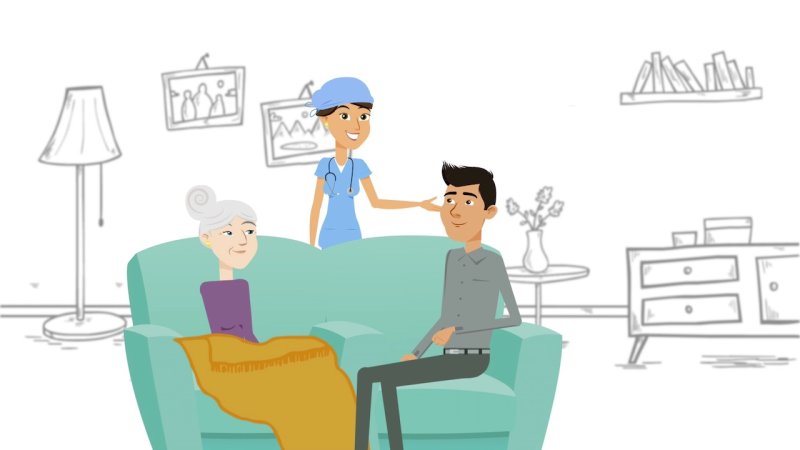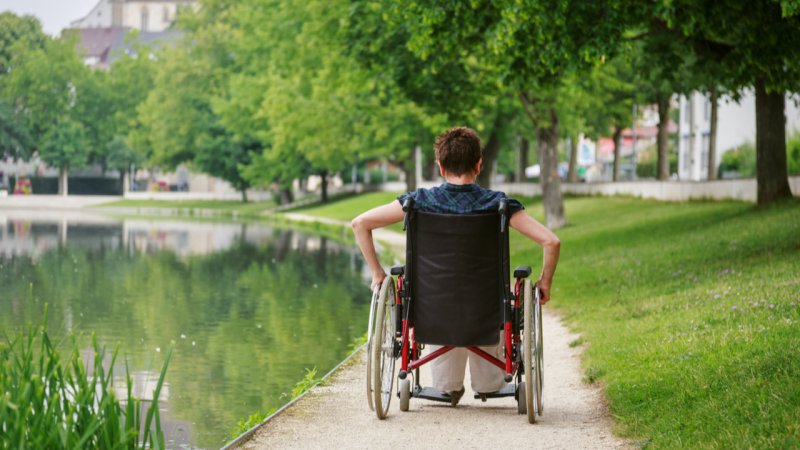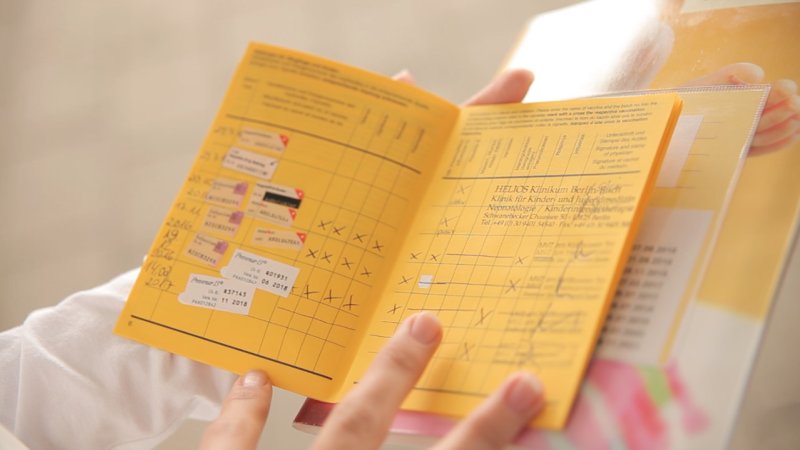Health
Health insurance, prevention and care
Emergencies
Emergencies can happen anywhere, anytime. An emergency is any situation in which people, animals or property are in danger. But who should one call in an emergency? Who can help? Here you can find out who to contact in which emergency. Employees of all emergency call centres speak German. In some cases, you can also ask for help in English or other languages, but there is no guarantee. If you don't speak any German yourself, seek help from a German-speaking person who can call the emergency centre for you.
Employees of the emergency call centres must know the following:
- Where is the emergency?
- What happened?
- How many are injured?
- What are the injuries?
- Who is reporting the emergency?
Expecting a Baby
Whether longed for or entirely unplanned, pregnancy and childbirth is a life-changing event. It can throw parents off the track for a while. In this chapter, you will find out where to seek help and support during pregnancy, what rights you have, and what issues you need to consider and plan for before childbirth.
Health Checks for Children & Adolescents
Babies quickly become kindergarteners and then schoolchildren. To ensure your child goes through a healthy development, paediatricians should examine them regularly. These examinations are called "Früherkennungs- und Vorsorgeuntersuchungen" , "U-Untersuchungen" or simply U-checkups. During the U-checkups, paediatricians check how your child is developing physically and mentally. They will discuss the results with you and provide further information on how to make sure your child will grow up healthy. Therefore, the U-checkups are an opportunity for you to discuss your questions and concerns about your child's health with paediatricians. During the examinations, the paediatricians also check whether your child has received all the necessary vaccinations for their age. You can learn more about these vaccinations in our chapter, "Vaccinations for children and adolescents".
Health Checks for Women
Approximately half a million people in Germany are diagnosed with cancer every year. Some types of cancer, such as breast or cervical cancer, are, in fact, usually curable - but only if detected in time. Free health checks are intended to ensure any problem can be detected early on so that doctors can identify diseases as early as possible to prevent them from becoming severe or possibly fatal.
Health Insurance
Health insurance is obligatory in Germany. If you wish to apply for a residence permit, you must be a member of a health insurance fund. Your health insurance provider, in principle, covers the costs of doctors' visits, hospitalisations, and (often partly) medications. In some cases, the health insurance scheme may take over the full expenses of your medicines.
If your asylum procedure is ongoing or have a "Duldung" or another temporary residence document, you can find the information you need in the chapter "Health Care for Refugees". There, you can also read about the health-related options you can benefit from, in case you do not have any papers.
Healthcare for Refugees
Everyone has the right to primary medical care in Germany. However, the extent of healthcare services and medical treatment you are entitled to depend on your residence status and the duration of your stay in Germany.
Refugees who have a residence permit usually join a health insurance scheme and are therefore entitled to all regular services their health insurance company provides. You can read more about the German health insurance schemes in our chapter "Health insurance".
Refugees who receive benefits - according to the Asylum Seekers' Benefits Act ("Asylbewerberleistungsgesetz")- are also provided with healthcare services. But based on the law mentioned, the scope of medical services provided to them is somewhat limited and access to healthcare is usually passed through the relevant authorities. If your asylum procedure is still ongoing or in case you have a tolerated stay ("Duldung") or have been issued a border crossing certificate ("Grenzübertrittsbescheinigung"), you belong to this group. Asylum seekers who are included in this group are divided into two subgroups based on the length of their presence in Germany:
- People who have been in Germany for less than 36 months, and
- People who have been in Germany for more than 36 months.
Please note: A revision of the Asylum Seekers Benefits Act in February 2024 increased the period mentioned above from 18 months to 36 months. However, if you had already been in Germany for 18 months before the new regulation was introduced, you are protected by a so-called “Bestandsschutz” or “Grandfather clause”– that means you do not have to wait 36 months to receive the benefits of statutory health insurance.
Home care
Many of those who are in need of care prefer to be cared for at home instead of moving into a nursing home or retirement residence. Living at home means you can be looked after by relatives or a nursing service (or both) and stay in your familiar environment. Caring for someone at home is called "outpatient care" ("Ambulante Pflege") or "home care" ("häusliche Pflege").
The so-called long-term care insurance ("Pflegekasse") partly bears the costs of home care, provided that you are covered by one, and they have determined your need for long-term care. You can read more about the issue in our chapter "Nursing Care System".
Here, we explain your rights as a patient who wants to be cared for at home. Furthermore, if you are a caregiver, keep reading to learn what rights you have as the provider of care for a loved one.
Living with Disability
Many only think of people in wheelchairs when it comes to disabilities. However, disability is multifaceted and there are also invisible disabilities. Learning difficulties, chronic and mental illnesses, for example, can also be considered disabilities. It does not matter if the disability is something with which the individual is born or a condition caused by an accident or illness. On this page, you can learn more about the rights and aid possibilities for people with disabilities in Germany.
Mental Health
Many of us have experienced (or will experience) stressful situations, fear, violence or helplessness at some point in their lives, whether in their country of origin, en route or in Germany. Processing such experiences and feelings could be very challenging. It is entirely normal to feel exhausted, tense, or not like ourselves afterwards. But it is crucial to take care of our mental health and – if necessary – seek help to process our experiences and possible trauma.
Here you can find out where to seek psychosocial support for yourself or others. There are various types of counselling and therapy that could help.
Nursing Care System
A severe illness, an accident or old age can prevent you from being able to take care of yourself and make you need help with washing, shopping, eating or taking care of yourself. You will not be left alone with such difficulties. If you need help taking care of yourself (be it permanently or for at least six months), you are considered to be entitled to nursing care in Germany. In this case, you usually have the right to support and financial aid provided by nursing care insurance ("Pflegeversicherung").
Right of Residence for People with Disabilities
Arriving in Germany and going through prolonged asylum procedures is difficult for all refugees, but asylum seekers with disabilities face even more challenges. Here you can learn more about your rights and opportunities as a refugee with disabilities in Germany.
You can find general information about living with a disability in Germany and available support options in our chapter "Living with disability".
Sexually Transmitted Diseases
Some diseases can be sexually transmitted. They are commonly called "STDs" (sexually transmitted diseases) or "STIs" (sexually transmitted infections). These diseases are easy to contract, and the consequences of an infection can seriously affect one later in life. The misconception that these diseases are only common among certain groups of people is not true at all– anyone who is sexually active can get infected and, therefore, must watch out.
In this chapter, you will learn more about sexually transmitted diseases such as HIV, AIDS and hepatitis. You will also find helpful information on how and where to have yourself anonymously examined for such infections in Germany. You will also find out where to seek medical and psychological support and how to protect yourself and others.
Vaccination for Children and Adolescents
Children can often get sick. Usually, it is nothing serious and the child recovers soon. But children can also contract serious diseases. To ensure your children are well protected against such serious diseases, you can have them child vaccinated. Vaccination will prevent your child from contracting certain diseases or becoming seriously ill if they catch them. Like the U-Checkups, there is a schedule based on which your child needs to receive each vaccine at a certain age. You can learn more about the U-Checkups in our chapter "Health Checks for Children and Adolescents".
Vaccination Schedule in Germany
In Germany, vaccination isn’t compulsory, but strongly advised by all health authorities. If you are unsure what to do, you can ask your doctor for help, or base your decision on the German vaccination system and its specific recommendations.
Depending on the country you grew up in, you might already have been vaccinated against certain diseases. However, these illnesses might not be prevalent in Germany at all. Instead, German doctors might recommend vaccinations against other diseases. Even if you are an adult, you might, therefore, have to get vaccinated again. If you are unsure about this, ask your doctor about vaccinations for adults next time you have a medical appointment. You can learn more about the vaccines children and adolescents need in our chapter “Vaccination for Children and Adolescents”.

